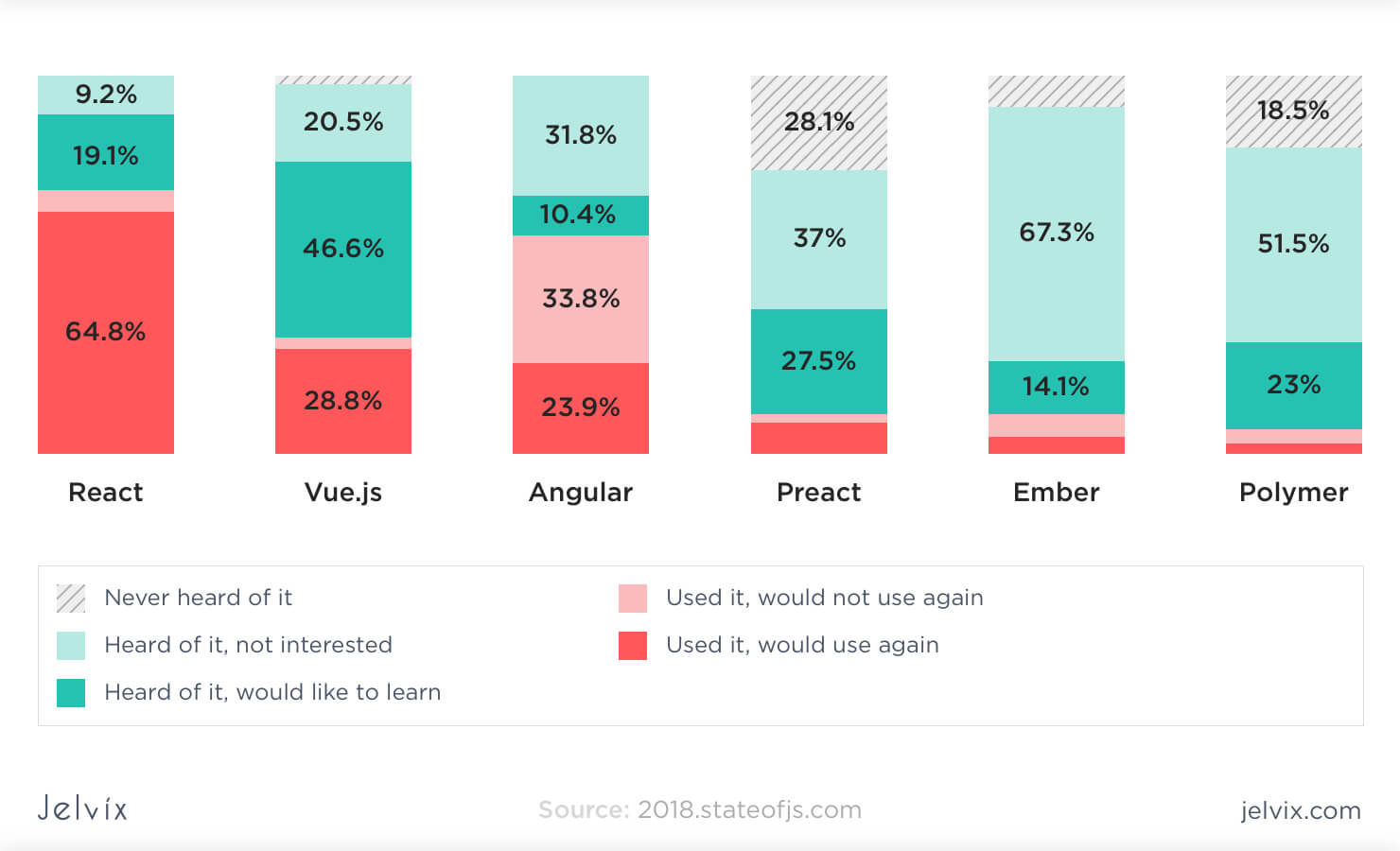Celikoglu Chronicles
Exploring insights and innovations from around the world.
Framework Face-off: Choosing Your JavaScript Sidekick
Discover the ultimate guide to picking the perfect JavaScript framework for your projects. Level up your coding game today!
React vs. Vue: Which Framework Fits Your Project Needs?
When choosing between React and Vue, it's essential to consider the specific needs of your project. React, developed by Facebook, is a popular library for building user interfaces, especially for single-page applications (SPAs). Its component-based architecture offers great flexibility and reusability, making it suitable for larger projects. On the other hand, Vue, with a simpler learning curve and more straightforward syntax, can be easier for beginners to grasp. It is ideal for smaller applications or when rapid development is crucial. For a detailed comparison of both frameworks, you can check out resources like FreeCodeCamp.
Performance is another key aspect to consider. React utilizes a virtual DOM to optimize rendering, which is beneficial for applications with complex interfaces. Meanwhile, Vue also employs a virtual DOM but is often noted for its efficient reactivity system. If SEO is a priority for your application, both frameworks can be server-side rendered, but React offers solutions like Next.js that facilitate this setup effectively. Ultimately, the decision should be based on your team's expertise, project complexity, and long-term maintenance. For more insights, refer to this comprehensive guide on Telerik.

Understanding Angular's Strengths: Is It Right for You?
Angular is a robust front-end web development framework maintained by Google, designed for creating dynamic and scalable single-page applications (SPAs). One of its main strengths is its two-way data binding, which allows automatic synchronization between the model and the view. This feature simplifies the process of keeping data consistent across the application. Furthermore, Angular's modular architecture promotes reusability and helps in maintaining code, making it a popular choice for enterprises that require large-scale applications. For more insights on Angular's architecture, you can visit Angular's official architecture guide.
Another significant advantage of using Angular is its comprehensive ecosystem, which includes a wide variety of tools and libraries like Angular CLI, RxJS for reactive programming, and Angular Material for UI components. These tools streamline the development process and help developers create applications more efficiently. However, the steep learning curve can be a barrier for newcomers. If you're considering adopting Angular for your next project, it's essential to weigh its powerful features against your team's skill set and project requirements. For further guidance, check out SitePoint's best practices for Angular.
The Future of JavaScript Frameworks: What to Choose in 2023?
The landscape of JavaScript frameworks is rapidly evolving, making it crucial for developers to stay informed about the latest trends and technologies. As we move into 2023, several frameworks are gaining traction due to their performance, ease of use, and community support. Among the top contenders are React, Vue.js, and Angular. Each of these frameworks has unique features that cater to different project needs. For instance, React remains a favorite for its component-based architecture and flexibility, while Vue.js is renowned for its simplicity and integration capabilities. On the other hand, Angular offers a complete solution with built-in tools, making it suitable for enterprise-level applications.
When choosing a JavaScript framework in 2023, developers should consider a few key factors:
- Project Requirements: Assess the specific needs of your project, such as scalability and complexity.
- Community and Ecosystem: A strong community can provide valuable resources and support; consider frameworks with extensive documentation.
- Future-Proofing: Opt for frameworks that are continuously updated and maintained, ensuring they stay relevant.
For more insights on this topic, you can check out this article that delves deeper into the future of JavaScript frameworks.